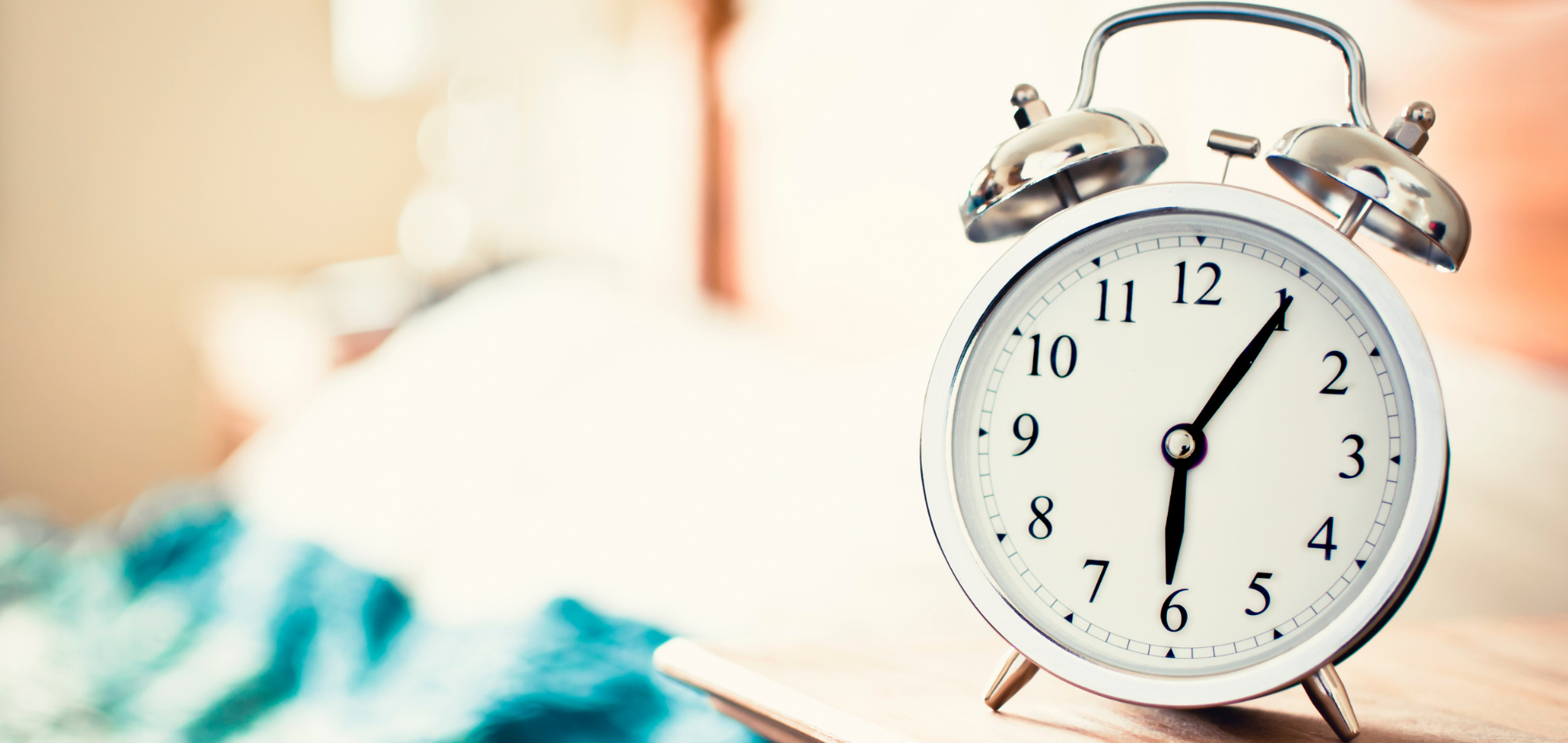Does your morning routine start by pressing the snooze button two, three, maybe four times? Racing out your door 15 minutes later, as you put on your shoes while checking your email, then stopping to grab a muffin and some java?
This usually ends up setting the tone for our entire day. It can create a feeling of disorder and the need to continue to rush through your day. This causes stress in the body: cortisol levels rise and stay up. This turns off our “rest and digest” system and has us in survival mode.
When we are in survival mode, our minds struggle with critical thinking, turning off other systems so our bodies can focus on “the stressor” on deck. Problem is, when we are rushing, this never shuts off. When we are stuck in survival mode, it creates the “wired but tired” feeling and we never really feel on top of our game or very productive.
Everyone wants to start on a good note, which means waking up in a good mood, calm, centred, and energized for the day, but this isn’t always the case. What we always seem to end up doing is sleeping until the very last minute or not leaving enough time for ourselves after making sure others are set for their day.
How can we avoid being overwhelmed first thing in the morning and still have a successful start to our day? Having a morning routine can really help. Creating a morning routine doesn’t need to be about checking off all the boxes. It’s about honouring your body by beginning your day with more zest, being at peace, and with a positive attitude. This may mean you do just two things that allow you to start your day right and feel like you are ready to tackle your day with your best foot forward.
Don’t get caught up trying to do a perfect routine. We may see others who get up and do a long list of things effortlessly, and then think we need to do the same — but we aren’t all morning people! If you try to do a workout in the morning and that isn’t what works for you, it ends up being something you dread and will resent over time. Do things that serve you well and that you know you can follow through with. You don’t have to do all the things you hear others doing or do a long list of things. This only feeds our need to rush, take on things that add stress and struggle.
There are many things you can do to start off right and make the most of your morning. You can even start the night before: our evening routine is directly related to how we wake up. Getting things together the night before (clothes, breakfast, lunch, etc.), winding down without electronics before bed, journalling brain dumps, and getting a good night’s sleep will help you follow through with a more solid morning routine.
The best way to start off with a good morning routine is figure out what habits will create more bang for their buck. The most important thing is feeling energized and well-rested. This has a lot to do with how efficiently cortisol is working in your body. Cortisol levels in the morning should naturally rise to help you feel good, awake, and promote clear thinking.
I know grabbing a cup of coffee in the morning is the go-to, but this can unnaturally raise cortisol. The best way to jump start your day is to drink a glass of water and then do some movement. It doesn’t have to be for long. Even five minutes of moving your body is a great way to naturally raise cortisol levels and to promote circulation, improve digestion, and have more energy. You can do some dynamic stretching, using active movements that take your joints through a full range of motion, or movement flows, which are similar to dynamic stretching. With a movement flow, you are simply adding dynamic stretches together in a flow, like yoga (check here soon for my upcoming article for a great movement flow), or three to four body weight exercises.
From there, you can do things like journal, eat your breakfast, read, mindful meditation, then check your email and schedule, jump in the shower, and get yourself ready to step out the door. This sounds like a lot — and it can be for some people. Personally, I need to get up an hour before starting my day. But that may not be necessary for everyone, especially for those with children.
I suggest starting off getting up a bit earlier, even just 15 minutes. Get used to that before trying to get up a lot earlier and attempting five new habits. This alone is a new habit, so slowly start getting up a bit earlier each week until you get to the point where you still feel rested but also have enough room to get in some quality positive habits.
Then start adding in things like movement, breakfast, etc. Choose what you think will benefit you the most. You may want to do journalling at night before bed. A good brain dump at night helps with quality sleep.
Thirty extra minutes for five minutes of movement, five minutes of mindful meditation, and 15–20 minutes to eat breakfast may be exactly what you need so you aren’t having to get up much earlier than you already do.
It’s important to remember that we all lead different lives. You may have read that a morning routine is the key to a successful day before, but what is suggested may be unrealistic for you. The key is to not try to do something that creates more stress. You don’t want to feel like you are failing. The point is to feel good, not worse. Write a list of things you would like to adopt in your morning routine and why you think that will help you. If it seems like a lot (which it most likely will), then break it down.
Can you do some of these in the evening? What makes the most sense for you time-wise?
What will add the biggest positive impact to start your day right?
Now that I have a solid morning routine, I can’t imagine it any other way. Getting up and rushing out the door is now a disservice to my day. Keeping it simple and impactful is best practice, giving us the boost we need to take things on with less stress, more clarity and more enjoyment.





